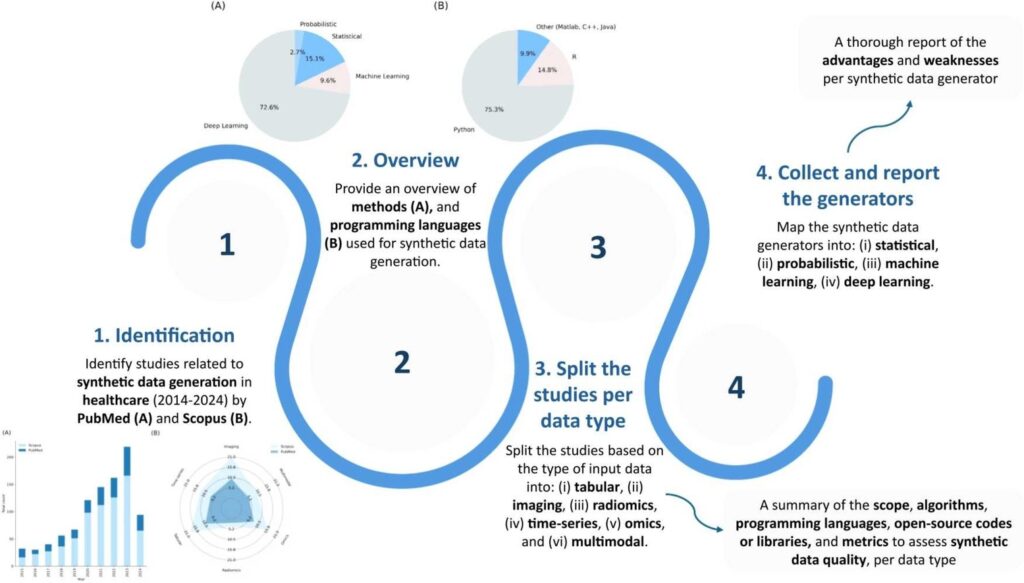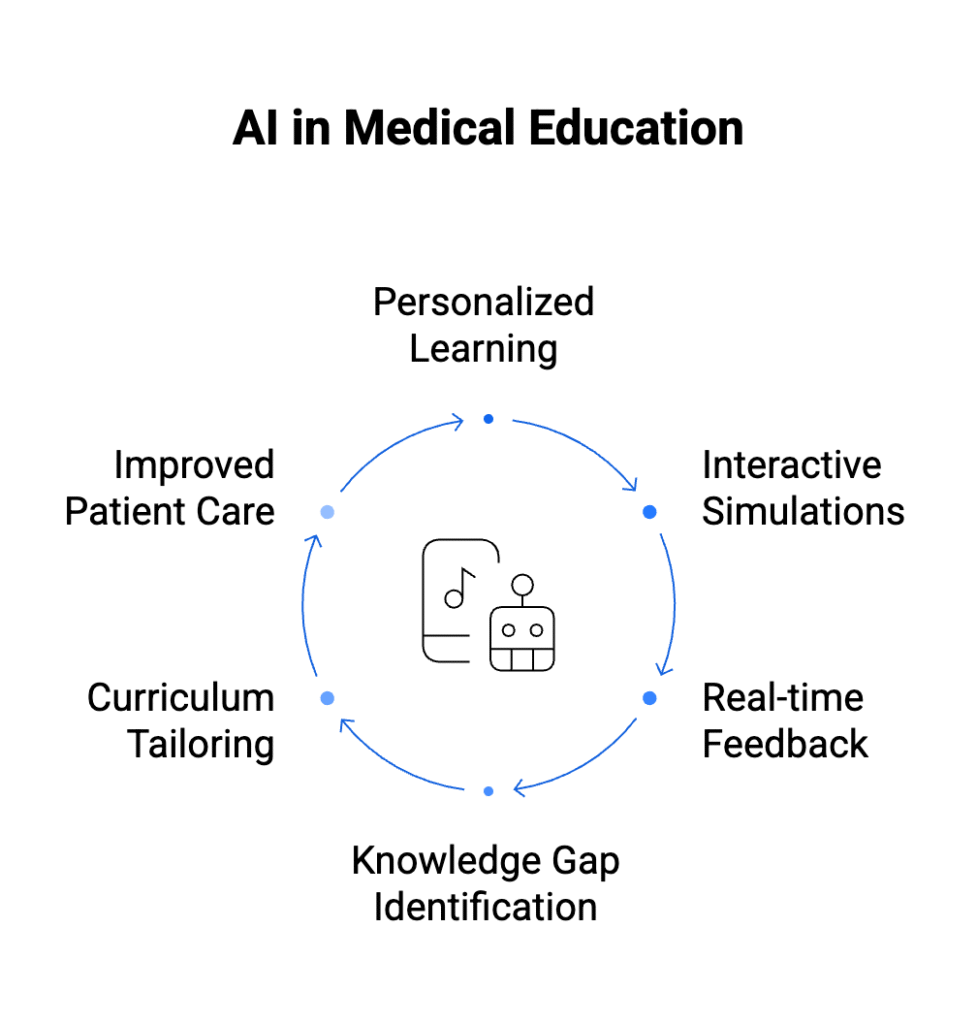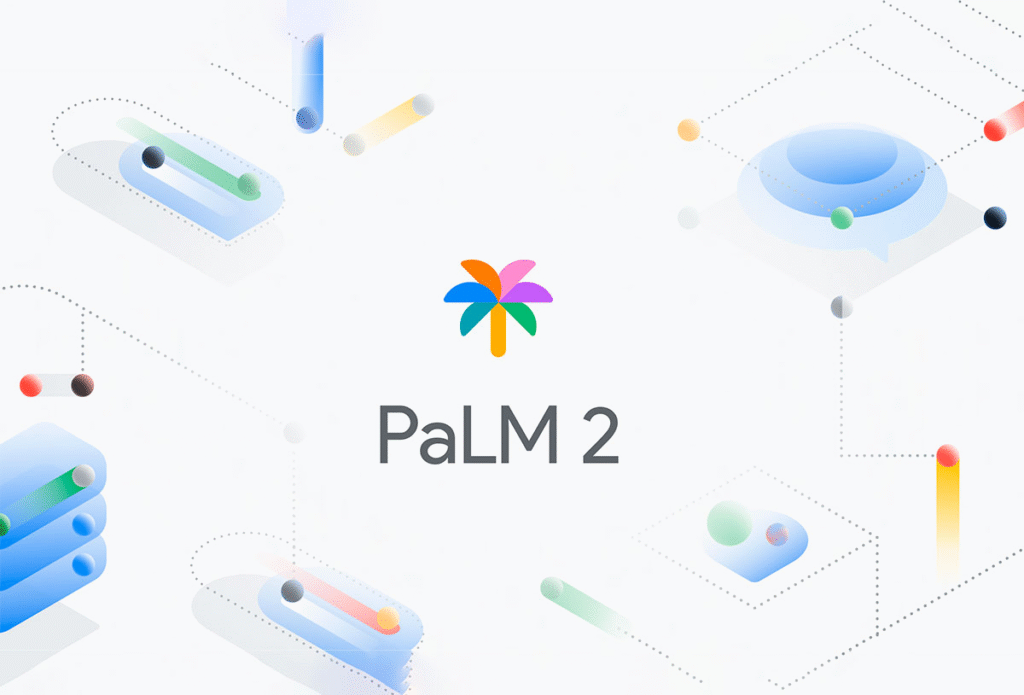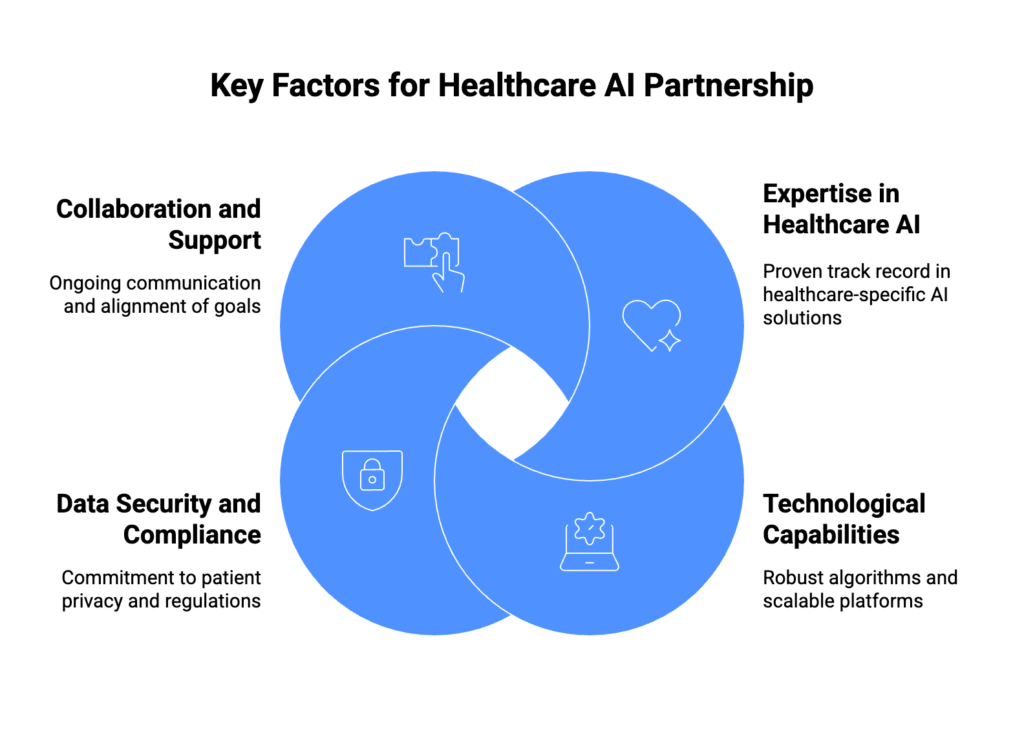AI solutions have come a long way in a remarkably short time. Sure, ChatGPT got all the headlines and captured the public’s imagination. But the real story? It’s playing out in hospitals, clinics, and healthcare organizations where enterprise-focused AI is quietly delivering results that actually matter—better clinical workflows, genuine operational efficiency, and measurably improved patient care.
Take Microsoft Azure, for instance. They’ve rolled out AI capabilities across healthcare systems that do something pretty remarkable: generate intelligent patient timelines. These systems dig through mountains of unstructured clinical data, pull out what matters, and organize it chronologically. The result? Clinicians finally get comprehensive patient histories right when they need them most—at the point of care.
Now, anyone who’s worked in healthcare knows the industry hasn’t exactly been quick to embrace new technology. That’s changing, though. Financial pressures and operational headaches are pushing healthcare organizations to take AI seriously in ways they never have before.
Here’s something that should get the attention of any healthcare executive: research from McKinsey and Harvard University shows that if we actually deploy AI widely across healthcare, we’re looking at potential annual savings between $200 billion and $360 billion for the U.S. system alone. That’s not a small number. And it’s not just theoretical anymore. At major medical conferences recently, doctors have watched AI systems perform real-time clinical documentation. What used to be reactive, fragmented care is starting to look more proactive and connected.
Of course, there’s a catch—there always is. Successfully deploying AI in healthcare means paying serious attention to data security, clinical accuracy, and the maze of regulatory compliance. Despite all the advances, we still need humans in the loop to ensure patient safety and maintain the quality of care that patients deserve.
Transform Your Business with AI-Powered Solutions!
Partner with Kanerika for Expert AI implementation Services
Why Healthcare Organizations Are Turning to AI to Cut Administrative Costs
Let’s talk about money for a moment, because the financial squeeze on healthcare organizations just keeps getting tighter. According to PwC’s annual analysis, medical costs jumped 7% in 2024. The culprits? Persistent inflation, workforce shortages that show no signs of letting up, pharmaceutical prices that keep climbing, and providers consolidating left and right. These aren’t temporary blips—they’re fundamental economic challenges forcing C-suite executives to seriously consider technologies that can move the needle on operational efficiency.
McKinsey’s research paints an interesting picture: AI tools can automate roughly 45% of administrative tasks across healthcare organizations. When you do the math, that translates to something like $150 billion in potential annual savings. And that’s just administrative work. Even something as straightforward as AI-enabled chatbots could shave $3.6 billion off global healthcare spending by 2025.
What’s actually happening behind these numbers? The technology is processing all that messy, unstructured data—patient records, medical images, clinical documentation—and using it to streamline workflows that used to eat up enormous amounts of time. Beyond just admin work, it’s enhancing how we train medical professionals, helping doctors make more accurate diagnoses, and even speeding up how quickly we can develop new drugs.
A Real Example: How Navina Built a Clinical Intelligence Platform That Works
Let’s look at a concrete example. Navina, a healthcare AI startup, pulled in $55 million in Series C funding in 2025. Not bad for a company that’s essentially trying to solve one of healthcare’s most persistent problems: information overload.
Their AI assistant does something physicians desperately need. It gathers patient data from everywhere—electronic health records, insurance claims, multiple care touchpoints—and turns it into something actually useful: actionable insights that doctors can use during patient encounters. No more hunting through dozens of screens or trying to piece together a patient’s story from fragments.
The American Academy of Family Physicians Innovation Lab evaluated Navina’s platform and found something pretty impressive: it cuts physician pre-visit preparation time by 61%. Think about what that means in practical terms. Instead of spending an hour before seeing patients just trying to get up to speed, doctors can spend that time actually taking care of people. The system even handles the tedious stuff—referral letters, progress notes, clinical summaries—automatically.
Unlocking Value With Databricks Lakehouse Architecture: Key Components & Benefits
Unpack core components, explore architecture and governance, and share best practices for successful adoption.
Solving the Privacy Puzzle with Synthetic Data
Here’s a thorny problem that keeps healthcare IT executives up at night: patient data privacy. On one hand, you need massive amounts of real patient data to train AI systems effectively. On the other hand, you have very real legal, ethical, and practical obligations to protect that data.
The National Library of Medicine has pointed to an interesting solution: synthetic data generation. Basically, AI creates fake patient data that looks and behaves like the real thing, statistically speaking. Researchers can use this synthetic data to study drug interactions, model disease outbreaks, and develop new algorithms without ever touching actual patient information. It’s not a perfect solution, but it’s proving to be a viable one.
This approach is already accelerating medical research by providing the scalable datasets researchers need to train machine learning models. Healthcare institutions are putting synthetic data to work across all sorts of applications—epidemiological studies, clinical trial design, personalized medicine research. The list keeps growing.
There’s a particularly neat example from Germany. A team of scientists developed something called GANerAid. It’s an AI model that uses Generative Adversarial Network methodology to create synthetic patient data for clinical studies. What makes it especially useful is that it can generate clinically relevant datasets even when you’re starting with limited initial training data. That’s huge for smaller research institutions or studies of rare diseases.

Source- Sciencedirect
Making Insurance Operations Less Painful
Anyone who’s dealt with medical insurance knows it can be a bureaucratic nightmare. AI is starting to chip away at that problem, particularly in claims processing and prior authorization.
Prior authorization is a perfect example. Under the current system, it takes an average of ten days to get authorization. Ten days where a patient might be waiting for treatment they need. AI-powered systems are cutting those timelines substantially. We’re not talking about shaving off a few hours here and there—we’re talking about fundamental improvements in how quickly patients can access necessary care.
Kanerika recently worked with a major U.S. insurance company on exactly this kind of challenge. The engagement wasn’t just about implementing some AI tool and calling it done. We built out comprehensive financial analysis and forecasting capabilities that helped them identify critical trends they’d been missing, assess operational risks more accurately, and make data-driven decisions about growth. That’s the kind of work that actually enables strategic expansion rather than just keeping the lights on.
How AI Is Reshaping Medical Education and Clinical Training
Let’s address something uncomfortable but important: medical errors kill people. Johns Hopkins research estimates that medical errors contribute to over 250,000 deaths every year in the United States. Now, these figures are hotly debated among healthcare researchers, and there are methodological questions about how you even count something like this. Other studies put the number somewhere between 200,000 and 400,000 hospitalized patients experiencing some form of preventable harm annually.
Whatever the exact number, it’s too high. And one promising avenue for bringing it down is better training for healthcare professionals.
Traditional medical education has always relied on simulation, but it’s been limited by being, well, pre-programmed. You run through Scenario A, then Scenario B, and so on. The scenarios don’t change based on what you do. They can’t surprise you the way real patients constantly surprise doctors.
AI-powered training systems are different. They dynamically generate patient cases that actually adapt in real-time based on what the trainee decides to do. Make one decision, and the patient’s condition evolves one way. Make a different decision, and you’re dealing with a completely different situation. It’s closer to the messy, unpredictable reality of actual clinical practice, which means it prepares healthcare professionals better for the complex situations they’ll face.
According to Software Advice’s 2026 Medical Software Trends survey, more than half of healthcare providers (52%) believe AI will have its greatest impact on clinical decision-making, yet most care teams are still learning how to use it effectively. Among practices already using AI, 88% report positive ROI, with NLP (42%) and large language models (36%) being the most adopted tools in clinical workflows. But with insufficient AI skills cited as a key barrier, the real work lies in training care teams to use these tools confidently and consistently.

Universities Leading the Way on AI Medical Simulation
The University of Michigan built an AI model specifically for sepsis training. Sepsis is tricky—it can kill quickly if you don’t catch it early and treat it aggressively. The research team noted something important: AI applications in sepsis management aren’t just about one thing. They span both predictive analytics (identifying which patients are at risk of developing sepsis) and case identification (recognizing when a patient showing up in the emergency department is already septic).
Meanwhile, the University of Pennsylvania took a different angle during the COVID-19 pandemic. They deployed AI simulation models to analyze transmission patterns and evaluate whether public health interventions were actually working. Social distancing protocols, vaccination strategies—they could model all of it and see what made a difference and what didn’t.
Data Warehouse Migration: A Practical Guide for Enterprise Teams
Learn about key migration phases, leading tools, and proven best practices to ensure a smooth, successful transition to the modern data era.
Using AI to Catch Diseases Earlier and Diagnose Them More Accurately
In medicine, timing matters enormously. This is especially true in oncology, where catching cancer early can mean the difference between a treatable condition and a terminal diagnosis. AI algorithms trained on huge medical imaging datasets are now matching—and in some specific applications, exceeding—the diagnostic capabilities of experienced clinicians.
These AI systems analyze CT scans looking for lung cancer. They evaluate dermatological images for signs of melanoma. They assess cardiac imaging for cardiovascular disease. What started as experimental research tools have become essential clinical support systems that radiologists, dermatologists, and cardiologists are actually using in their daily practice. The result? Better diagnostic accuracy, which translates directly to better patient outcomes.
But AI in medical imaging isn’t just about interpretation. It’s also improving image quality itself. Hospitals are deploying AI tools that take low-resolution scans and transform them into high-definition images. For radiologists trying to spot subtle abnormalities, that improvement in image quality can make all the difference.
Real Breakthroughs in Medical Imaging
Researchers have been doing fascinating work with Generative Adversarial Network models. These systems take low-resolution medical scans and convert them into high-resolution images. And we’re not talking about one type of scan—this works across multiple imaging modalities. Brain MRIs, dermoscopy, retinal fundoscopy, cardiac ultrasound. The approach has shown significant improvements in how accurately clinicians can detect abnormalities. That’s setting new quality benchmarks for medical imaging across the board.
Then there’s Google’s Med-Palm 2. When they trained it on comprehensive medical datasets and tested it on answering medical questions, it hit 85% accuracy. Is it perfect? No. But it represents real, meaningful progress toward AI systems that can support clinical decision-making.

Speeding Up Drug Development Without Compromising Safety
Here’s a sobering fact about pharmaceutical development: bringing a new drug to market typically costs up to $2 billion and takes years—often more than a decade—of research and clinical trials. The process is slow, expensive, and filled with failures. Most drug candidates that look promising in early research never make it to patients.
AI is starting to change that equation, though the industry is still figuring out exactly how.
The market for AI-powered drug discovery is expected to hit $4 billion by 2028. According to Forbes, AI solutions are already cutting drug screening timelines by something like 40% to 50%. When you’re talking about a process that normally takes years, shaving off 40% to 50% of that time is transformative. It means drugs reaching patients faster. It means lower development costs. It means pharmaceutical companies can take more shots on goal.

How Big Pharma Is Investing in AI Capabilities
Recursion Pharmaceuticals made headlines when they dropped $88 million to acquire two Canadian AI startups. One of them, Valence, specializes in something particularly interesting: designing drug candidates from datasets that traditional pharmaceutical development approaches can’t really handle. Essentially, they can work with less data and still generate viable drug candidates.
Meanwhile, over at the University of Toronto, researchers developed something called ProteinSGM. It’s an AI system that generates novel protein structures at speeds that would have seemed impossible just a few years ago. Then another AI model—OmegaFold—evaluates those AI-generated proteins to figure out whether they might actually work as therapeutic targets or pharmaceutical compounds. It’s AI systems checking other AI systems’ work, and it’s moving incredibly fast.
The Ethical Minefield of Healthcare AI
There’s a quote from Harvey Cushing, one of the pioneers of neurosurgery, that’s worth remembering: “A physician is obligated to consider more than a diseased organ, more than even the whole man—he must view the man in his world.” That perspective becomes even more critical when we’re deploying AI systems that directly affect patient care, privacy, and clinical outcomes.
There are four big ethical dimensions that healthcare organizations need to grapple with: algorithmic bias, regulatory frameworks (or the lack thereof), clinical accuracy, and figuring out who’s accountable when things go wrong.
Let’s start with algorithmic bias, because frankly, it’s the scariest one. If you train an AI model on data that doesn’t represent the full diversity of the patient population, that model is going to perform worse for underrepresented groups. This isn’t theoretical—it’s already happened. There have been documented cases of AI systems that worked great for some patient populations and delivered inferior care for others, perpetuating and sometimes amplifying existing healthcare disparities.
Then there’s the regulatory situation, which is… well, let’s just say it’s evolving. The oversight frameworks for healthcare AI are still being developed. Organizations are operating in a lot of gray area, trying to figure out compliance requirements that haven’t been fully defined yet.
Clinical accuracy is non-negotiable, obviously. In most industries, if an AI system makes a mistake, maybe it costs you some money or creates some inconvenience. In healthcare? AI errors can result in serious patient harm or death. The stakes couldn’t be higher.
And finally, there’s accountability. When an AI system contributes to a bad outcome for a patient, who’s responsible? The treating physician who relied on the AI’s recommendation? The healthcare organization that deployed the system? The company that implemented it? The developers who built the algorithm? These aren’t just philosophical questions—they have serious legal and ethical implications that the industry is still working through.
Data Integration with Microsoft Fabric: Simplify, Unify, and Analyze Your Data
Discover how data integration with Microsoft Fabric is reshaping modern analytics and speeding up business intelligence.
Finding the Right Partner for Your AI Implementation
If your healthcare organization is serious about implementing AI, you need to get really clear on what you’re actually trying to accomplish. Vague goals like “we need AI” or “we should use machine learning” aren’t going to cut it. You need AI solutions tailored to your specific clinical workflows, built around your organizational constraints, and trained on your data.
The implementation process touches everything. You’re selecting algorithms. You’re integrating new systems with existing electronic health records and clinical workflows that people have been using for years. You’re ensuring HIPAA compliance and data security. Depending on what you’re building, you might be dealing with FDA regulatory requirements. It’s complex, it’s technical, and it requires deep expertise in both healthcare and AI.
That’s why the partner you choose matters so much.
Transform Your Business with AI-Powered Solutions!
Partner with Kanerika for Expert AI implementation Services
What to Look For in a Healthcare AI Partner
Healthcare Domain Expertise Combined with Technical Chops
You need a partner with a proven track record in healthcare AI specifically, not just AI in general. Healthcare is different. The regulatory environment is different. The workflows are different. The stakes are different. Your implementation partner needs to understand clinical workflows, regulatory requirements, and the operational challenges that health systems, physician groups, and payers face every single day.
The methodology matters too. Reliable partners have structured processes they’ve refined through multiple successful deployments in healthcare settings. This isn’t their first rodeo. They know where the pitfalls are, they know what works, and they can move faster because they’ve done it before.
Technology Infrastructure That Fits Your Needs
Partners who’ve built established frameworks and pre-built integration tools can customize solutions to address what you specifically need rather than trying to force-fit a generic solution. These tools and frameworks streamline everything from data aggregation and algorithm training to ongoing performance monitoring and system maintenance. The difference between a partner with these capabilities and one without them can be years of development time and millions of dollars.
Change Management Support
Here’s something a lot of organizations underestimate: the technology deployment is actually the easy part. Getting your organization to actually adopt and use the AI system? That’s where things get hard. People don’t like change, especially when it affects how they do their jobs. Clinical staff have learned workflows that work for them. You’re asking them to change those workflows.
Effective partners provide real change management support. They help you manage the organizational transition. They train your clinical staff. They work with you on workflow optimization. They help shift your organizational culture to embrace AI-augmented care delivery rather than resist it.

Why Healthcare Organizations Choose Kanerika for AI Implementation
Patient data privacy isn’t just a concern—it’s a massive implementation challenge that can derail healthcare AI projects before they even get off the ground. Research published in BMC Medical Ethics lays it out pretty clearly: the huge volumes of data you need to train AI models create serious patient privacy risks. If your organization doesn’t have deep expertise in healthcare data governance and AI security protocols, you’re facing heightened compliance risks and, more importantly, potential patient harm.
This is exactly the kind of challenge Kanerika was built to solve. We’ve spent over two decades working in data management, analytics, and AI/ML technologies. That experience translates into solutions that meet stringent healthcare regulatory requirements while maintaining the ethical standards that patients have a right to expect.
How Kanerika Approaches Healthcare AI Projects
Our team brings together 100+ technology professionals with expertise across cloud infrastructure, business intelligence, AI/ML, and healthcare-specific applications. That might sound like marketing speak, but it matters because healthcare AI implementations fail when you’re missing any one of those pieces. You need people who understand the technology and people who understand healthcare, working together.
What that multidisciplinary capability actually means in practice is that we can architect AI solutions that integrate seamlessly with whatever healthcare IT ecosystem you already have in place while delivering operational improvements you can actually measure. We’re not ripping out systems that work and starting from scratch. We’re making what you have work better.
Proof Points from Real Healthcare Projects
We can talk about capabilities all day, but what have we actually done? Here are some concrete examples:
One major healthcare provider came to us with system performance problems that were affecting patient care. We re-architected their system using Microsoft Azure and delivered a 30% increase in system performance, 35% reduction in support costs, and 80% improvement in response time. Those aren’t small numbers. That’s the difference between a system that frustrates clinical staff and one that actually supports them.
For a global clinical research organization, the challenge was data processing. They had mountains of data but couldn’t process it fast enough to be useful. We implemented data wrangling solutions that cut their data processing time by 60% while simultaneously improving the quality of data they were using for research. Faster processing plus better quality—that’s the kind of outcome that actually changes what an organization can accomplish.
We’ve also deployed intelligent automation for invoice processing across a major North American healthcare provider’s network of 30+ remote healthcare centers. The manual process was causing payment delays and burying staff in data entry. The automated system eliminated those delays and freed up staff to focus on work that actually requires human judgment.
What We Offer Beyond Just Implementation
Kanerika’s healthcare AI practice isn’t just about building technology and walking away. We work with you across the entire lifecycle:
Strategic AI Consulting: We start by assessing where your organization actually is with AI readiness. Then we work with you to identify use cases that align with your strategic objectives and build a roadmap that makes sense for your organization. Not some generic best practices roadmap—one built around your specific situation.
Custom AI Development: We design and implement AI models trained on your data. This matters because off-the-shelf AI solutions often don’t perform well in healthcare settings where each organization’s data, workflows, and patient populations are different. Custom models trained on your specific data deliver performance that generic solutions can’t match.
Healthcare Data Infrastructure: You can’t do AI without solid data infrastructure. We build secure, HIPAA-compliant data platforms that aggregate all those disparate clinical and operational data sources into something AI systems can actually use. If your data is scattered across a dozen different systems, we bring it together.
Regulatory Compliance and Security: This is non-negotiable in healthcare. We implement comprehensive security controls, audit trails, and compliance frameworks that meet HIPAA, HITECH, and FDA requirements for AI-enabled medical devices. You’re not just getting technology—you’re getting technology that meets the regulatory requirements you’re accountable for.
Change Management and Training: We run organizational change programs designed specifically to drive clinical adoption. The best AI system in the world doesn’t deliver any value if your clinical staff won’t use it. We work with you to maximize ROI by ensuring your people actually adopt and effectively use the solutions we build.
Our Commitment to Quality and Security
Look, anyone can say they take security seriously. We back it up with ISO 27701 certification, SOC 2 compliance, and GDPR adherence. These aren’t just checkboxes—they represent the rigorous quality and security standards we maintain across every engagement. For healthcare organizations deploying AI solutions, that commitment to information security and privacy protection means you can move forward with confidence that the data governance and regulatory compliance pieces are handled properly.

Why Healthcare Leaders Choose Kanerika
Healthcare organizations looking to implement AI solutions that actually deliver measurable clinical and operational improvements need partners who bring more than just technical skills to the table. You need deep domain expertise in healthcare. You need proven implementation methodologies. You need comprehensive technology capabilities. And honestly, you need a partner who’s been through this enough times to know where the problems are going to come from before they show up.
Kanerika’s track record across healthcare AI implementations, combined with our commitment to ethical AI development and regulatory compliance, gives healthcare organizations a partner they can actually trust for digital transformation work.
The solutions we build are designed to scale and deliver value over the long term. We’re not interested in delivering something that works great for six months and then becomes a maintenance headache. We build solutions that continue delivering value as your organizational needs evolve and as healthcare technology itself advances.
If you’re ready to move beyond pilot projects and PowerPoints to actual AI implementation that improves how your organization operates, let’s talk.

FAQs
How is generative AI used in healthcare?
Generative AI helps healthcare by creating realistic synthetic data for training models without privacy risks, designing new drugs and materials faster through simulations, and personalizing patient care with tailored treatment plans and educational materials. It’s essentially accelerating research, improving efficiency, and enhancing the patient experience. This is all achieved by learning patterns from vast datasets and then generating new, relevant information.
What type of AI is used in healthcare?
Healthcare uses a blend of AI types, not one single kind. You’ll find machine learning for diagnosis prediction and personalized treatments, natural language processing to analyze medical records and assist doctors, and computer vision for image analysis (like X-rays). Essentially, it’s a toolbox of AI techniques tailored to specific medical needs.
How generative artificial intelligence AI can improve public health?
Generative AI can revolutionize public health by creating realistic simulations for disease spread modeling and drug discovery, leading to faster and more effective interventions. It can personalize health information and education, making it more accessible and impactful for diverse populations. Furthermore, AI can analyze vast datasets to identify hidden patterns and predict outbreaks, allowing for proactive public health strategies. This results in improved disease management and resource allocation.
How is generative AI used in clinical research?
Generative AI accelerates clinical research by creating synthetic patient data for training models, predicting drug responses, and designing clinical trials more efficiently. It helps overcome data scarcity and privacy concerns, enabling faster and more robust analysis. This leads to quicker development of new treatments and improved healthcare outcomes. Ultimately, it aids in the discovery and testing of therapies with greater precision.
What are generative AI examples?
Generative AI creates new content instead of just analyzing existing data. Think of it like this: it doesn’t just *understand* images, it *makes* new ones. Examples include tools that write stories, compose music, design logos, or even generate realistic-looking photos – all from scratch, based on its training. It’s essentially AI that’s creative.
How big is the Gen AI market in healthcare?
The healthcare generative AI market is exploding, but pinning down an exact size is tricky. Early estimates suggest billions in current value, with projections into the tens of billions within a few years. Growth is driven by unmet needs in drug discovery, diagnostics, and personalized medicine, meaning its ultimate size depends on adoption rates and regulatory approval processes. It’s a rapidly expanding landscape.
Which technique is commonly used in generative AI?
Generative AI relies heavily on neural networks, particularly deep learning models. These models, often trained on massive datasets, learn underlying patterns to then generate new, similar content. Think of it like teaching a computer to paint by showing it thousands of paintings – it learns the style and creates its own. Transformer networks are a prominent example, excelling in text and image generation.
What is the application of AI in healthcare in India?
AI in Indian healthcare is rapidly transforming diagnostics, improving access to quality care especially in remote areas. It’s boosting efficiency through automated tasks like appointment scheduling and medical record management, and accelerating drug discovery and personalized medicine initiatives. Ultimately, AI aims to bridge healthcare disparities and improve patient outcomes across the country.
What is the most used generative AI?
Pinpointing the single *most* used generative AI is tricky, as usage metrics are often proprietary. However, models like ChatGPT (powering many platforms) and those powering image generation tools (like Midjourney or Stable Diffusion) currently boast incredibly high user numbers and broad applications. The “most used” really depends on how you define usage – by individual users, API calls, or overall impact.
What is generative AI for disease detection?
Generative AI in disease detection uses machine learning to create new medical data – like synthetic images or patient records – to augment existing datasets and improve diagnostic models. This helps overcome data scarcity limitations and biases, leading to more accurate and robust disease detection tools. Essentially, it’s using AI to generate helpful training data to better detect illness. This allows for better model training and potentially earlier diagnosis.
What type of AI model is used for generative AI?
Generative AI isn’t tied to one specific model type; it’s an umbrella term. Many different architectures, like large language models (LLMs) and generative adversarial networks (GANs), can be used. The choice depends on the desired output (text, images, etc.) and the specific application. Essentially, it’s about the *capability* to generate new content, not a single underlying algorithm.
What is generative AI in medical imaging?
Generative AI in medical imaging uses powerful algorithms to create new medical images or enhance existing ones. It goes beyond simple analysis; it can, for example, generate synthetic datasets for training other AI models or create more detailed images from incomplete scans, improving diagnostic accuracy. This ultimately helps doctors visualize and understand medical conditions more effectively and efficiently. Essentially, it’s like having a highly skilled image technician working alongside radiologists.
Does generative AI use NLP?
Yes, generative AI heavily relies on Natural Language Processing (NLP). Think of NLP as the AI’s understanding of human language – allowing it to process, interpret, and generate text or speech. Without NLP, generative AI wouldn’t be able to understand your prompts or create coherent responses. It’s a fundamental building block.
Which industry is likely to benefit the most from generative AI?
Generative AI’s biggest boon will likely go to industries dealing with large volumes of creative or data-driven tasks. Think content creation (marketing, media), design (architecture, fashion), and drug discovery – areas where AI can automate complex processes and unlock new levels of innovation far exceeding human capacity alone. Essentially, any field limited by human time or imagination stands to gain the most.
What is the size of AI in healthcare market in India?
India’s AI in healthcare market is experiencing rapid growth, though precise figures fluctuate depending on the source and metrics used. It’s a multi-billion dollar sector projected to expand significantly in the coming years, driven by increasing data availability and government initiatives. Expect considerable variation in market size estimates depending on whether it includes software, services, or hardware components.
Which AI model is best for healthcare?
There isn’t one best AI model for healthcare; rather, optimal performance depends entirely on the specific task. Different applications, from diagnosing medical images with computer vision to processing clinical notes with natural language models, demand specialized architectures. The ideal choice prioritizes precision, ethical considerations, and seamless integration with available data for each unique medical challenge.
What is an example of AI being used in healthcare?
AI in healthcare often shines in diagnostics. For example, AI algorithms can swiftly analyze medical images like X-rays, MRIs, and CT scans to detect subtle anomalies, such as early-stage tumors or cardiovascular issues, often more accurately and faster than human eyes alone. This accelerates diagnosis, enabling earlier intervention and ultimately leading to better patient outcomes.
What is the difference between predictive and generative AI in healthcare?
Predictive AI analyzes existing healthcare data to forecast outcomes, like disease risk or treatment response, guiding proactive decisions.
Generative AI, conversely, creates entirely new, realistic content, such as synthetic patient data for research or drafting personalized treatment summaries.
The key difference lies in whether the AI anticipates what will be (predictive) or innovates by producing what could be (generative).
What is Gen AI in healthcare 2025?
By 2025, Generative AI in healthcare signifies AI’s shift from just analysis to active creation. It involves systems designing novel drug compounds, generating personalized treatment plans, or producing synthetic patient data for research and training. This technology aims to revolutionize personalized medicine, accelerate discovery, and empower clinicians, driving unprecedented efficiencies and improving patient outcomes.
What is the main advantage of AI in healthcare?
The primary advantage of AI in healthcare is its unparalleled ability to rapidly process and derive profound insights from colossal amounts of medical data. This significantly enhances diagnostic accuracy, personalizes treatment pathways, and predicts health trends with a precision and speed impossible for humans. Ultimately, it elevates patient care, streamlines operations, and accelerates medical innovation on an unprecedented scale.
What is the future of AI in healthcare?
AI in healthcare promises a transformative future, enabling highly personalized diagnostics and accelerating drug discovery with unprecedented precision. It will primarily augment clinicians, freeing them from routine tasks to focus on complex patient care and empathy. This symbiotic relationship ensures more efficient, accessible, and accurate medical outcomes, democratizing advanced healthcare insights globally.
When was AI first used in healthcare?
While the idea of computational assistance in medicine emerged earlier, AI’s practical journey in healthcare truly began in the 1970s with expert systems like MYCIN. These early, symbolic AI programs were among the first to directly assist with diagnosing diseases and recommending treatments. It wasn’t the machine learning we see today, but a foundational step towards intelligent medical decision support.
Can medical devices use generative AI technology?
Yes, generative AI can be integrated into medical devices, often working behind the scenes. It excels at tasks like simulating device performance, accelerating novel component design, or generating synthetic data for algorithm training. However, its direct application requires rigorous validation, strict regulatory oversight, and robust ethical frameworks to ensure paramount patient safety and reliability.
What is the application of generative AI in nursing?
Generative AI in nursing acts as a creative assistant, generating personalized patient education, synthesizing complex medical data into actionable insights, and automating administrative drafting. It moves beyond just data retrieval, directly supporting more efficient workflows and freeing up nurses to focus on compassionate, hands-on patient care.
How will AI take over healthcare?
AI won’t take over healthcare by replacing humans, but through profound integration that transforms its core. It will revolutionize diagnostics, personalize treatments, accelerate drug discovery, and streamline operations by handling complex data analysis and predictive modeling. This shift empowers human clinicians to focus on empathy, intricate decision-making, and direct patient interaction, fundamentally redefining their roles and elevating overall care quality.









